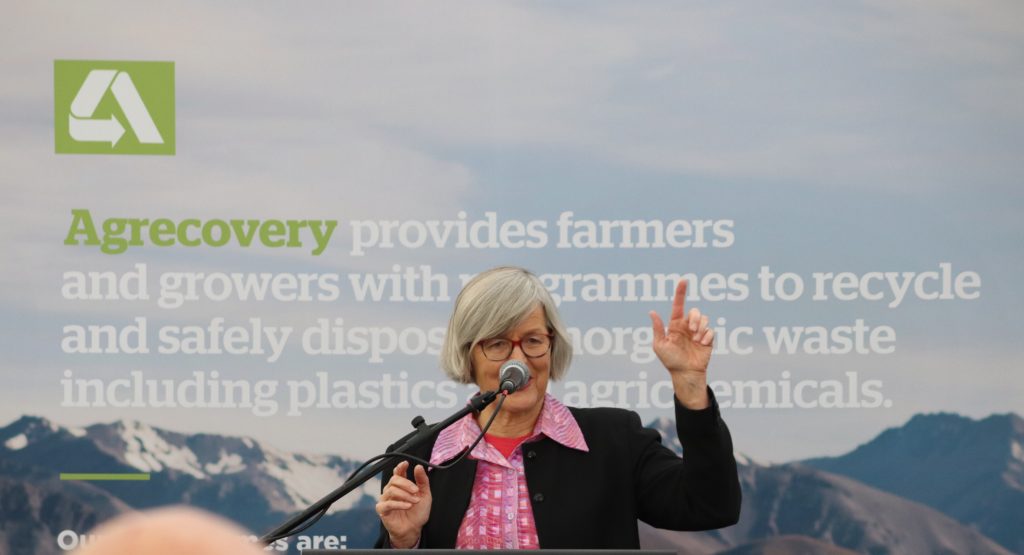A new project will support farmers by providing alternatives to the harmful disposal practices of burning, burying and stock-piling of waste.
The Associate Minister for the Environment Eugenie Sage announced the launch of the New Zealand Rural Waste Minimisation Project at the South Island Agricultural Field Days in Kirwee today.
Rural recycling programme Agrecovery will implement the Project by offering nationwide events for farmers to sustainably dispose of waste all in one go. This will clear agrichemical and motor oil containers, unwanted agrichemicals, used motor oil, fertiliser bags and silage wrap.
“By providing a ‘one-stop-shop approach’, we will be removing barriers to recycling and encouraging our rural communities to participate in sustainable disposal practices for a variety of waste,” says Agrecovery board chair Adrienne Wilcock.
The Agrecovery Foundation started in 2007, setting its sights to clear plastic agrichemical containers and drums from farms and orchards around the country. The agrichemical industry chose to fund the programme so its waste could be made into useful products within New Zealand. The programme also sustainably disposes of unwanted agrichemicals.
Minister Eugenie Sage said that businesses must take responsibility for their products throughout their whole life cycle. “Both voluntary and mandatory product stewardship is essential to ensure resources are managed sensibly. Agrecovery has long recognised this and started one of the earliest voluntary product stewardship schemes. There have been a few in the industry who haven’t participated in the process and it is clear that government intervention may be necessary.
“That is why I instructed officials to begin investigations into Mandatory Product Stewardship for four waste streams. All producers have a responsibility to the environment to minimise the harm that their products have, and one way to ensure this is through mandatory product stewardship.”
The project builds upon two trial events held last year which collected almost 20 tonnes of rural waste. “Solving waste issues by providing a service that deals with waste all in one go was supported by farmers who participated in the events,” says Wilcock.
“It is critical that we take responsibility for all plastics used on farms – which have long been problematic – and meet these challenges head-on,” says Wilcock.
Agrecovery has high ambitions to clear more rural waste by partnering with industry groups, product stewardship schemes and councils around the country to make it easier for rural communities to recycle.
See also Agrecovery Chair’s speech to South Island Agricultural Field Days

